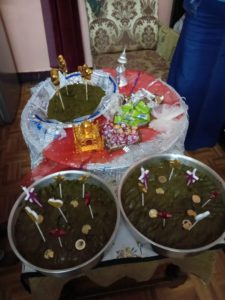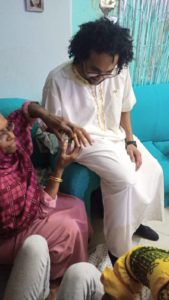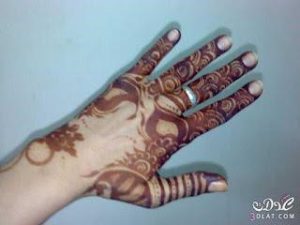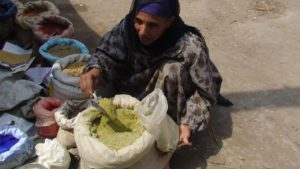Henna
Henna is linked to several practices, skills, traditional knowledge, and oral traditions. Henna is a rite of passage in the individual’s life cycle, in marriage, the pre-marriage night is the henna night celebration when everyone put henna on his hands and in some Communities on feet with the special songs for the night. The henna tree stems are used in many handicrafts including a special type of basketry for bread “meshana “. The henna tree grows in the Nubia region in the south of Egypt and revolves around it a lot of social practices, beliefs, and traditional knowledge passed on by individuals through generations in the local communities. The henna tree and its leaves revolve around a complete culture known to many societies in Egypt, for example, in Nubia in the rituals of birth, marriage, death and are linked with using Henna, and on celebrating religious feasts all women and girls are putting Henna as a joyful practice, it is worth to mention that men in the local communities also use Henna in different occasion and Henna of the groom is a special night young men celebrate and show the social bond between family members and friends. Henna is also associated with some beliefs and knowledge of planting the tree, drying its leaves, preparing it for dyeing, and the times when individuals refrain from dyeing, then believing in the blessing of this plant, and ways of caring for it as it is considered an important economic resource, and it has many Therapeutic functions as a part of the healing system in local communities, known by the professional healers and the housewives, especially in treating headache, hair loss, fever, dermatology, and cracked heels, it is also believed that after curing from any sickness kid’s bodies should cover by Henna and leave it to dry then removed by warm water to announce the child cured. Brides draw their hands with heavy paintings by Henna and make sure it lasts for the longest period could be a sign of happiness and that welfare so they manage to add some herbs and additions to Henna to make it dark and sustained. Professional women in drawing with Henna called Hanana usually take care of the Henna events in weddings and baby showers “Soboe”. Many oral traditions are related to Henna and people sing to it songs in Henna nights and also proverbs.





